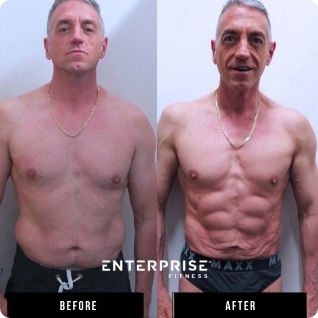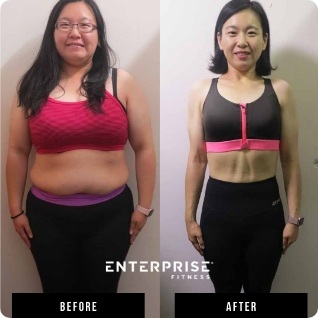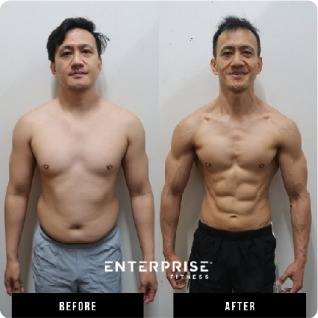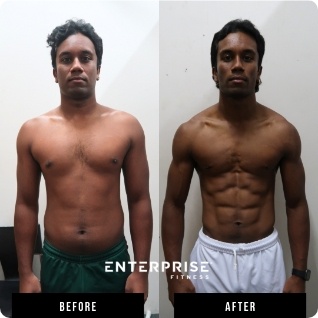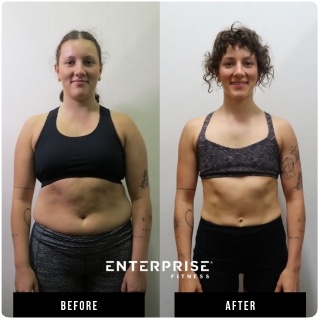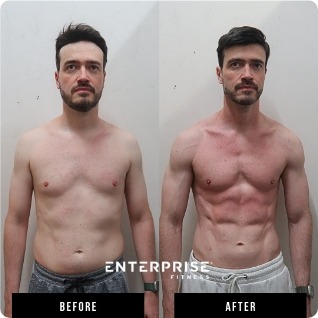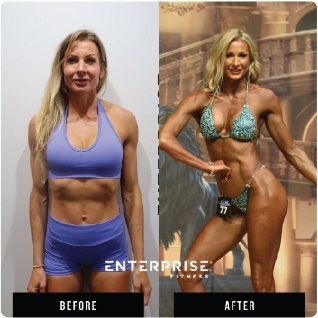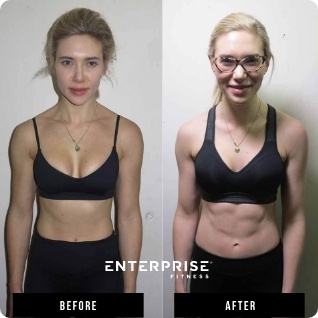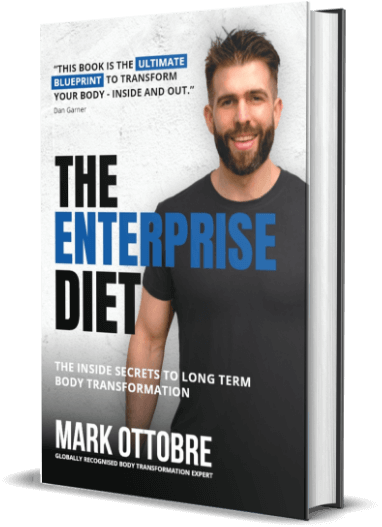Listen on iTunes or Soundcloud:
Some say disease and health are all in our minds, and are manifestations of us not living true to our values…
In today’s episode of the Enterprise Fitness Podcast, you will be treated to an insight by a very amazing man on this topic…
John Demartini is a renowned author and speaker; he has literally touched millions of people across the globe with his work. As an author of over 40 books, and an internationally acclaimed speaker, he is considered to be one of the worlds leading authorities on human behaviour and personal development.
In this interview, learn about:
- How our thoughts affect our health
- Emotions and disease… is there a link?
- Do we gain benefits from sickness’
- Can we have health without the existence of disease
- Discussion of traits that coincide with anorexia and diabetes
- A discussion of cancer and emotional patterns
Related Posts
- Paleo, Intermittent Fasting, Raw Foodism… – The Enterprise Fitness Podcast
- Heavy Metal 101 – The Enterprise Fitness Podcast
- The Consequences Of A Low Fat Diet – The Enterprise Podcast
The following is a transcription taken from an interview with Dr. John Demartini and Maximus Mark Ottobre on the body, mind and emotional connection of health and disease.
Due to the nature of transcriptions we cannot guarantee accuracy, spelling or grammar. We think we’re doing pretty well to bring you both audio interviews and transcriptions with world leading authority on health and fitness free of charge. If you’re able to edit transcriptions free of charge, we would love to hear from you.
Mark: This podcast is proudly brought to you by www.maximusmark.com and Enterprise Fitness. For more great podcasts just like this one, visit http://www.maximusmark.com/radio or search Maximus Mark on iTunes.
Hey folks, it’s Maximus Mark. Welcome to the show that punches you in the face with information but in a good way. Today I have a very, very unique show for you, with one of my all time greatest mentors, Dr. John Demartini.
John Demartini is a renowned author and speaker. He’s literally touched millions of people across the globe with his work. If you’ve never heard of Dr. John Demartini, he’s on the same level as of someone like Tony Robins.
He’s considered one of the world’s leading authorities on human behavior and personal development. Well, today we have the absolute pleasure of speaking to John about health and mind. Some say disease and health are all in our minds and manifestations of us not living true to our values. Today, you will be treated to an insight and perspective by a very amazing man.
Just before we get to the interview, Dr. John Demartini’s work has had a profound impact on my work and I have to say, through applying the principles that he teaches in the “The Breakthrough Experience” and his “Prophecy Program”, I’ve literally been able to transform my life and I can honestly say that 6 or 7 years ago, I didn’t think that I would be interviewing one of my greatest mentors on my own podcasting show where I’ve interviewed a heck of a lot of my greatest mentors.
I hope you guys enjoy the interview and leave your comments and do share this on Facebook as well. Speak to you guys on the other side!
John: Good morning or afternoon or evening, Mark!
Mark: How are you doing, John? It’s nighttime actually. But you wouldn’t know, it’s nice and sunny.
John: It’s morning here and evening there, so we got a global time frame here.
Mark: That’s spot on. Welcome. Thank you so much for coming on. Before we get started, I just want to kind of let the listeners know as well, your work has made an absolutely profound impact on my life and I’m very grateful to you for the principles you’ve not only taught me but also for coming to the show and getting to share you and your wisdom and your knowledge with all the listeners today. So a big humble thank you.
John: Thank you.
Mark: So let’s get into it!
I’ve heard you talk about the mind and body relationship before, I believe in one of your programs, “Prophecy II” as well as in “Breakthrough”; you talk about the manifestations of mind and body, is that right? Can you tell us a little about those programs?
John: Yeah. Well, the program that I call “The Breakthrough Experience” I do a brief mention of the relationship between mind and body, but in my next level program “Prophecy II”, I cover nearly a thousand different health conditions and the underlining psychology in them.
The endocrinology, the physiology, the neurology, every aspect of how those relate and it’s a very in-depth program, it’s five days long. We had that in South Africa where about 130 different health professionals at it.
I’ve been involved with the mind-body connection now for nearly four decades, so, I’m very fascinated by it, very new insight in the last 30 or 40 years of epigenetics and the relationship between our perceptions and our environment and on to our genetics and our physiology. Profound things are happening in that field now, so amazing insights have been emerging.
Mark: I guess the theme of the whole show tonight is the mind and body relationship. But one thing you just touched on there was epigenetics. In my understanding, it really is as simple as our thoughts impact our genes, is that right?
John: What happens is, each individual has a set of values, a set of priorities that they live their life by, and whenever they perceive things, they filter things to those values, and whenever things support their values, they literally induce a series of polypeptides and amino acid derived neurotransmitters and regulators and modulators and hormones, and these affect cell walls throughout the body depending on how they are distributed.
And those cell walls, initiate a cascading of enzymes that literally eat what they call methylate or acetylate the genes and histone-protein around the genes, and alter transcription and protein function and literally their cells find change. So our perceptions, based on our values, and our beliefs have a vast impact on cellular function.
And we now know that we can literally turn on and turn off various genes, and now we’re getting it down to… like we first discovered the genome, now we’re understanding the epigenome, how different emotions are actually impacting precise genetics, down to different amino acids sequences that are being manufactured and literally regressing or progressing different enzymes that are being manufactured in structured proteins.
So, without question, our mind affects our body and our thinking and our feeling and our emotions have a huge impact, if not the most important impact on health and disease. Without a doubt, that’s drastic. I started writing about this 35 years ago and I’ve been writing since about it and I’m very, very fascinated with this field that’s emerging.
Mark: Wow. Cool. So before we get more into that, something you taught me, I definitely want to teach the listeners this kind of perspective, there are parts of our body that we both despise and love and something we have come to learn and learn through the principles is that we never can get rid of this. What can we do to overcome the fantasy of trying to be perfect all the time?
John: I had the opportunity to work with even supermodels and I found this fascinating; I’ve found that no matter how attractive they are to the general audience, they like and dislike their body. They always have something that they don’t like. I look and them and say, “You look great,” but they automatically think that their hair is too thin or their thighs is too long, one thing or another, they always have something to pick on.
And I found out that we have a thermostat, a homeostat, inside our mind to both build and destroy us, to kind of put ourselves up and put ourselves down. We’ve all had experiences we feel proud and then we feel shame, we kind of build ourselves up, put ourselves down, but we do this not only mentally but we also do this physically.
No matter what, these are either very balanced and very, very mild or they’re very extreme. If it’s very extreme we can get manic and depressed about out body and set up incredible fantasies and unrealistic expectations by comparison. Whenever we see somebody that we think has more attractive than us, we inject the values and ideals of what they look like our body and judge ourselves accordingly.
It is so important to understand that we need a homeostatic mechanism on our thinking about our body and has to have balance and don’t have false expectations on one side. I believe that there’s a condition called dysmorphia, basically is the addiction to fantasies about bodies and their resentment to body parts because of this, and this can cause a lot of distraction to the people and sometimes unwise, volatile behavior.
I have to build the methodology of which I call the Demartini method, which is a science of how to, you might say, homeostate and bring balance back to the minds so you can appreciate the body. Because the real truth is that your body is designed to be both liked and disliked, as you might say, but not to the extremes. It is wise to have a balanced orientation; the quality life equates the quality questions we ask and then the method, I help people ask balancing questions so they can love and appreciate their body not to fantasize and infatuate with it.
Mark: So to summarize; it’s where you kind of see people who almost infatuated with their upper body and have a resentment for their lower body, I see this a lot in the gym…
John: Yeah, everybody has a part… I mean, I’ve never really worked with somebody in this field without finding these polarities. Some people love their hair, and they love their eyes but they may not like their cheeks. They may like their breasts and they may not like their butt. They may like their legs but they may not like their upper arms. There’s always something, so, you have to ask the question if you have a body part that you’re not liking up, you have to ask, “How does it serve you? How does it help you fulfill your highest values, what’s most meaningful to you?” and as you find the benefits of that.
And then the parts you’re infatuated with and that you’re proud of, its wise to ask, “How is it to this a disservice?” and balance both perceptions; because if you have an expectation on one, you sometimes have an unrealistic expectation on other parts. But I’ve never met anybody who doesn’t have both sides. The perfection is not one-sidedness, perfection is that balance.
That’s what true perfection is. If people understand that they already have that, they’ll reshape their lives more and they’ll love themselves more.
Mark: Absolutely. It seems to be a lot more sickness and disease today than there was 50 or 60 years ago, what would you relate this to? Are we shifting as a society towards one perspective?
John: There’s one factor that we’re having greater details and diagnostics so we’re able to identify various conditions.
Another one is the expansion of labels because of marketing in pharmaceuticals and in the health industries which automatically put labels and therefore conditions.
And the other is, we have less nutrients today, there is a lot of malnutrition. The foods that we get in the stores today don’t have all the nutrients needed so we are basically missing nutrients.
Then we also have toxic pollutants that are in the air, more so than ever before.
And obviously there’s a stress level; the speed of which we function is excessive. And so, all these factors lead to you might say, allopathic conditions.
And now because of the super bugs that are now emerging because of the overuse of antibiotics, we’re now having surge in some of the bacterial diseases and infectious diseases.
Then there’s the unrealistic expectations because now we can compare ourselves to so many other people that have what we think has more than us, we can input unrealistic expectations add to the stress levels and demand levels. All those factors are variables that are there and probably more of what I mentioned.
Mark: That’s really a good answer. Especially the stress levels; there’s a lot more ways especially on Facebook and Twitter, we definitely can compare ourselves to different people a lot faster than ever before.
John: I always say that depression is a comparison to your current reality to unrealistic expectation in comparison to other people.
The wise thing to do is to compare your life and your own actions and even your body parts to your dream; but not to other people. You’re designed magnificently for your own vision, and identifying your own highest value, your own inspired mission, what you’re dedicated to, the difference you want to make to the world. Compare your daily actions to that instead of to other people, you get further.
Mark: Definitely. Do you think in a way, people can think themselves thin or think themselves sick?
John: It’s interesting; my wife a number of years ago, before she passed away, she had wrote a book called “Think Yourself Thin”, so I am very familiar with that construct and without a doubt; people, with their attitude, are more likely to moderate there diet if they are inspired by life and keep more stable in their weight.
It’s been found that if people are fulfilling their highest values, their most inspired objectives, their aspirations and their inspirations are congruent, when they do, they are less vulnerable to volatility and diet, less vulnerable to immediate gratification and addictive behaviors or overeating disorders.
So if a person fills their day with things that inspire them and have such a busy day that they don’t have time to eat, they eat to live instead of live to eat. They are more likely keep a moderate eating pattern.
Mark: Right. Definitely. You’ve spoken before about people with diabetes and they have a bitterness and people with hypoglycemia have a sweetness, can you explain what you mean by this?
John: You know it’s been my observation clinically with people for the last few decades that when I work with the people who have diabetes, very commonly they are not easy to tell what to do, you can’t tell them what to do. They are more likely to make their own decisions. They’re more on a little bit into, might say, self-righteous side.
Hypoglycemics you can tell almost anything and they’ll do it. They’re more on the, what I call, self-wrongteous side. The people that exaggerate themselves raise the blood sugar and people that minimize themselves relative to other people and are more altruistic, lower their blood sugar.
We’ve all had that, when we’re a little assertive toward somebody else blood sugar goes up to deal with it, it’s part of the fight or flight mechanism. People that have different perceptions and different personas can fluctuate their blood sugar, but diabetics are very common with this pattern, that’s why it’s very difficult to get them to follow instructions on wise diets and wise actions to keep the blood sugar normal.
People with hypoglycemic like I’ve said, you can tell them what to do and they’ll follow it to the letter. They’ll measure what they eat. They’ll do all of it. These personalities that are absolutely correlated, and I’ve seen it over and over, even dogs and cats. Dogs are more likely to be hypoglycemic and cats more diabetic, because of the same personality, the same things show up in animals.
Mark: Things like anorexia which of we’ve kind of touched before and body dysmorphia, what have you found them to be emotionally linked to?
John: Well, I can’t say that I’ve found an absolute pattern in anorexics.
Believe it or not, some treatments for anorexics has just make them eat. Once they get the habit of eating, they get back in the pattern again, that has been quite useful.
I’ve also seen in some cases, not in all, but in some cases, there has been emotional perceptions of trauma, either there were sometimes sexual issues, incestral issues, sometimes there’s been rapes, sometimes there’s been forced control and that’s the only thing that they can control back and by parents. There are many different factors there, I haven’t seen an absolute pattern on it and I’ve certainly worked with enough but I haven’t seen an absolute pattern, but there is probably about 8 or 9 patterns that I’ve seen, but those are some of them.
But sometimes just getting them in the pattern of eating, sometimes they basically have set unrealistic expectations of themselves and there’s no way of living up to them and their image of themselves is compensating for their shame and guilt. But other times, there is also genetic factors you have to factor in.
But the pressure, if they can prioritize their daily actions and find out what’s really meaningful to them and delegate more priority things and dissolve with the Demartini method a lot of emotional baggage that they held on with their family dynamics, these can at least alleviate part of it. (But) sometimes we just need to get over there in a controlled environment and get them to eat.
Mark: Right. For sure. So moving on to another very common disease that you have spoke many times about; cancer. What behavioral themes and emotional links have you found in cancer patients? I know you have mentioned before of the black and white thinking?
John: I was the president of the Cancer Prevention Control Association in Houston, Texas many years ago, and of course when I was in practice, I saw plenty of cancer patients and I still to this day work with a lot of cancer patients.
(And) there is without a question a correlation between the mind-body in this case. (And) I’ve read literature after literature both sides, some deny it, some affirm it, but I’m certain of it, I’ve seen it so many times, there is definitely a regression to a more primitive behavior pattern we call it metazoa I in biology.
In embryological stage and also in the anthropological stage of humanity, if we regress ourselves back to metazoa I biochemistry and physics, the body, we initiate these cancer cells, these trophoblastic cells in the body. (And) so, extreme polarities of perception in a relative world initiate this.
Another thing is, if you have a perception that, “Well my father is always mean to me, he was never nice. And my mother is always kind and always giving, but my father always restrain and hated me,” and all these all or none, black and white, every and always and nevers, complete highly polarized black and white thinking.
This tends to make us highly stressed, unavailable to adapt to a changing environment and we hold on to emotional labels and baggage that’s very deep, sometimes very, very early in our lives, that are very, very deep. (And) these things can regress our physiology and our neurotransmitters, I’ve traced this down to the science of it, literally regress it down to genetic and activating junk DNA, and metazoa l DNA inside us and so regresses us back and activates these cancer states and initiates regression back to stem cell function.
(And) they have mapped this out, its quite extensive but it’s a beautiful understanding of how the body and the mind work. So, anything we can do to reduce the stress levels dissolve the emotional labels that people get stuck in. That’s why I put the Demartini Method together; columns 12 and 5 just specifically to help dissolve labels and extremes of polarities and perceptions and add synchronicity to opposites in our perceptions, to help resolve that because without a doubt what people do they give their immune system a rally and if there’s a way of getting their natural killer cells and their T-cells back up these helps increase it.
Balanced mind helps heal the body, helps the cancer have a chance to be healed.
Mark: With all that said, I guess, one of the common challenges that sometimes presenting this kind of perspective on cancer, people will say; do you think that’s true for children?
John: Absolutely. See, in Scientific American over the last few years, there’s been an increase in number of articles demonstrating, (and other science journals, Science Nature, all of them), have pretty well established that the construct of an innocent child is time to throw away.
I’m certain, in working with children, in working with regressed children and now especially with particular savant that I had the opportunity to work with, we have right from birth prior and prior to birth, cognition, awareness, amazing skills, and the idea of an innocent, blank slate individual as it was once thought of last century is out now, is not real.
So we have to quit treating children as these innocent little people. They have incredible strategies, they know what they’re doing. They’re scientists, they’re learning things, they have objectives, they know how to use cries to get what they want, they know how to manipulate parents. They’re very research oriented, they try to figure things out. They have a lot of knowledge but they sometimes are born, believe it or not, thinking they should be the opposite sex, thinking that they cause all the turmoil in the family.
They are sometimes born with incredible emotional strains and challenges and when we regress people, the children back we find this and amazing things they’re born with, unbelievable stress patterns and they can affect immune systems like adults; (and) we have to realize it they’re not clean slates when they come in.
We can see in the ultrasound of a baby when it’s under a high stressed situation, we can see them squirming around and reacting and we now know in regression that they have memories of these things. (And) each has a shocking physiological impact, they affect methylation and acetylation of cells, they regress cell functions. We can create disease right while we’re in the womb by the time we come out.
So, the idea that they’re innocent and blank slates is trying to throw that out because it’s not what the fact show today.
Mark: That’s really interesting. I definitely have to do more research on that one, gives a lot of food for thought. Do you think people gain a benefit from being sick?
John: There are definitely secondary gains and ulterior unconscious motives in almost illness I found. In fact, when I ask people surprising questions, shocking questions, “What’s the benefit you’re getting out of this illness?” At first they want to slap me, but once they start digging and they uncover amazing reasons and motives.
Let me give you one example, a story, a lady came into my office many years ago with diabetes. She was in a wheelchair, she had an African woman wheel her around, came in and I did my evaluation, examination, and I gave her report of findings the following day, and I outlined a treatment protocol and program that I really truly believe would help her. It involved quite intensive amount of work, I mean there’s was nutritional involvements, psychological involvement, adjustments from chiropractic perspective, movements, change in diet, change in attitude, lots of things.
(And) when I presented it to her, she looked at me, she kind of looked down and she would not face me. I said, “You seem not to be interested this positive opportunity here,” and she said, “Well, Dr. Demartini, I really didn’t expect to have anybody to say I could be helped. Everybody said that I would just deteriorate and if you could actually get me well, it means I have to function again and I would lose the most important person in my life, the woman who wheels me around. She’s doing it for 8 years now.”
And I said, “So what you’re saying is that you really don’t have interest in getting back on your feet again?” and she goes, “Not really. I just came here just because I have to do that in order to get my coverage.” And I said, “Oh ok.”
So they wheeled her out of there and I said, that’s a lesson. (And) I started asking questions to patients “What were the benefits out of it?” (And) you will be amazed, I mean, absolutely blown away by what people uncover. Sometimes I’ve seen people with health conditions get their families together. Sometimes they get off work. We see it in childhood. Young kids get sick when they don’t want to deal and face the bully in school, or a test, or challenges at school, but this goes on in life.
And every time if we support the little child when it comes to booboo and bumps in the elbow and we give, we buy an ice cream and we take care of it, we train it to get what it wants by using sickness.
So there’s definitely unconscious motives in some of these conditions and there are surprisingly, unbelievably revealing when asked this question, so, without a doubt, there’s that.
I always say nobody will continue to do something without a benefit, without a drawback, there always looking for a reward without a risk, in every action is that. (And) even though we have infectious diseases our immune system can respond to our stresses, and to our perceptions, our unconscious motives and values systems to create symptoms.
We’ve all been, probably had in a moment, where we’ve been really angry or really upset and end up getting a sore throat or sickness within 30 minutes to an hour, and we wondered, “Oh, is that a virus or is that because of our emotions?” So unconscious motives definitely play a role in disease, there’s no doubt about it.
Mark: Great answer. From one of the schools of thought in medicine at the moment, quite popular, is that all diseases are autoimmune diseases basically.
I guess you working one on one with people, have you found any emotional links to autoimmune disorders?
John: Well, it’s interesting when I first started getting involved in mind-body back in early 70’s, I found that there was only a few mentions of autoimmunity. That was a very, very rare mention.
Now, we’re finding out that autoimmunity is a huge factor. We’re finding the relationship between absorption syndromes and autoimmunity coming through the cell wall, Leaky Gut Syndrome and it’s relationship.
We’re finding out when there is all of a sudden an exchange between the mother’s cells during embryological development, fetal development going in to the bloodstream of the child and back and forth and whenever you reset the mother, you can create autoimmune reaction to the cells you’ve picked up from the mother inside you and create things.
We found out we have shame reactions and blame reactions way back at the very earliest stage of, you might say, phonology, you have what they call self-other recognition systems and immune system.
(And) this goes back on even to sponges and all the way through the vertebrate lineage, all the way to the humans, these immune responses are there.
So anytime we perceive something with in ourselves that we are ashamed about that we want to get rid of, anything we see something from the outside that we want to blame. Blame and shame reactions can create autoimmune reactions.
We found out that people can have allergic reactions also and autoimmunity as result of this by associating extreme pains and value challenging situations to foods or to people or to almost anything. So we definitely have a reaction psychologically to these autoimmunities.
We found that narcolepsy, which is now known to be autoimmune related to the hypocretin in the brain, we now know that when a person all of a sudden starts to talk about something that’s very discomforting and challenging, their values systems, they go into a sleep pattern and fall out to avoid it.
We found out that some of the collagen diseases and they’re involved in this, also, is breaking things down, we feel like beating ourselves up and we’re literally unraveling the trophically molecules and collagen diseases emotionally from this.
So there’s no doubt that our psychology is affecting these autoimmune responses as I’ve had people, hundreds of people over the years, who had these conditions and used the Demartini Method on them, neutralize the emotional charges that are secondary and primary and literally change those responses and they don’t have those conditions and it’s just amazing watching.
Mark: So you’re saying it can be a number of different emotional links but mainly it’s blame and shame?
John: Well, blame and shame; anytime you have an unrealistic expectation on yourself to live outside your values or to live in a one-sided world, you can initiate it.
Any time you project your values unto others, and expect them to live in your values and not their values or expect them to be one-sided people, always happy, never sad, this kind of thing, you set yourself up to what is called the blame-shame game.
(And) in that process you run your immune system down. You can literally run it down in very quick responses and regress it. Every time you are very, very stressed, you regress your immune system down all the way to the macrophage level and primitive response level, this is what they found is initiating cancer metastasis’.
These high stress patterns, cause you regress immune system down to the macrophage level, cancer cells are linking on the macrophages having diastasis and traveling through the body that way.
So, without a doubt, there are emotions that are regressing physiology and causing these immune reaction, and autoimmunity is part of that.
(And) there are other factors. We like to think and we like to blame genes only. What we’re learning on epigenetics today, genes are more passive than we once thought. We’re definitely impacting the genes and activating junk DNA.
Junk DNA is nothing but regressed early primitive forms of DNA that we need when we’re under stress. When we’re stressed, we regress back and use old DNA from earlier species. That’s why diseases is many times a regression from a common, healthy state. There’s tremendous amount of research on this today.
Mark: Before we wrap up, I definitely want to touch on this topic; is it possible to have health without the existence of disease?
John: If a person could stabilize their emotions and stay in a state of grace, gratitude and love, and be certain in present and inspire, and stabilize that, then the construct of health and disease come to normality.
You have what is called anabolism and catabolism, a building and destroying system in your body, a sympathetic and parasympathetic autonomic system that’s bringing a build-and-destroy constantly (or destroy-and-build).
You have mitosis which is building and duplication and apoptosis which is destruction.
You have oxidation and reduction which is destruction and building the body.
All the way down to the cell wall, everything is recycling and remodeling itself. You have osteoblastic and osteoclastic remodeling. Your whole body is rebuilding and destroying; neuroplasty in the brain is even doing this.
You have to have build and destroy and build and destroy is another term for health and disease, so to live in a fantasy that you’re going to be “building without destroying” is kind of an illusion.
If we just did build without destroy, we would just be like Jabba the Hut in Star Wars. We have to have a remodeling mechanism and therefore we have to have health and disease.
Disease is a lever arm of health actually and we need to have both. (And) it sounds odd but I think they’re finding out now that some of the diseases we have in childhood are essential for us to have health in the future.
We have to have both and to think that we’re going to have one without the other is delusional, its like trying to only think positivity thoughts and never be negetive, I would say that negative thoughts are essential in life too. They help us set realistic expectations and not set fantasies for our life. So we need both in life, and real wellness includes both health and disease.
Mark: Great answer. Final thoughts?
John: I appreciate the questions, these are great questions.
I think that if person will identify what’s truly most important in their life, if they go to my website, they go to “determine your values” on the menu, www.drdemartini.com, they can go there and they can determine what their highest values are and set goals that are congruent and aligned with that and they live more fully, inspired and aspired that way, they have a decreasing probability of volatility in their body.
The more volatility the shorter the lifespan. Moderation and rhythm is consistently a by-product of an inspired being. So I say, find your highest values are, set goals that are congruent with that, delegate lower priority things, do what’s truly meaningful to you, fill your day with inspired meaningful actions or otherwise it will fill up with things that will frustrate you…
(And) then eat wisely, drink plenty of water, not the other stuff, the rest of it is not necessary, water’s what’s wise to drink, and breathe deeply, and you go back to the basics, and go for a walk and make love.
You do those things, you’re going to have a longer life, and probably more productive life and meaningful life and more inspired life and you probably won’t have time for the oscillations of health and disease.
Mark: Where can people go to learn more about you?
John: Well, they simply can go to my website www.drdemartini.com and on there is just a wealth of information – radio, television, newspaper, magazine, articles, inspirational writings, or Facebook they can go to, everyday there’s an inspirational message, Dr. Demartini Facebook, there’s just a wealth of information there that you can learn.
I’m dedicated to expanding human awareness and potential and educating people across the world so that’s what the website will be filled with.
Mark: Thank you; I’ll could speak to you all day John.
Thank you so much for coming on and teaching the wisdom that you’ve been teaching and I’m really looking forward to seeing you in seminar very soon. Thank you so much for coming on.
John: Thank you so much. Appreciate the opportunity to share a meesage
Mark: Thanks John. Speak to you soon.
Well, that was the interview with Dr. John Demartini and make no exaggeration guys, everything I said on the call about Dr. John, him having such a profound impact on my life is absolutely true.
I went to my first ‘Breakthrough Experience’ (Johns program/seminar in 2006 or 2007 and from there (might sound a bit corny) my whole perception of reality really changed.
I really recommend you get yourself down to a Breakthrough Experience with Dr. John Demartini. He speaks number of times a year so whether you’re in Sydney, Melbourne, Queensland, really doesn’t matter he does it all over Australia.
I’ve also done the Prophecy Program as well with John. I did that, I think in 2009 or 2010, either way, both amazing programs and there really is only one John Demartini. In seminars John absolutely goes for it from 8 am or 9 am to 10pm or 11pm at night, pretty full-on seminars but you definitely, needless to say, get your money’s worth.
Highly recommend it for everyone. Grab his books, “The Breakthrough Experience” is a great book to read if you’re new to this, another one if you’re in business, “How to Make One Hell of a Profit and Still Get to Heaven”.
He has been a very big mentor to me quite number of years. Anyway guys, I will stop ranting now. I hope you guys really enjoy this interview. Leave your comments below, post it in facebook, share it with your friends, do all that fun stuff.
Go to www.maximusmark.com/radio listen to more great podcasts like this one. Remember supplement smart, eat well and train hard.
Maximus Mark



